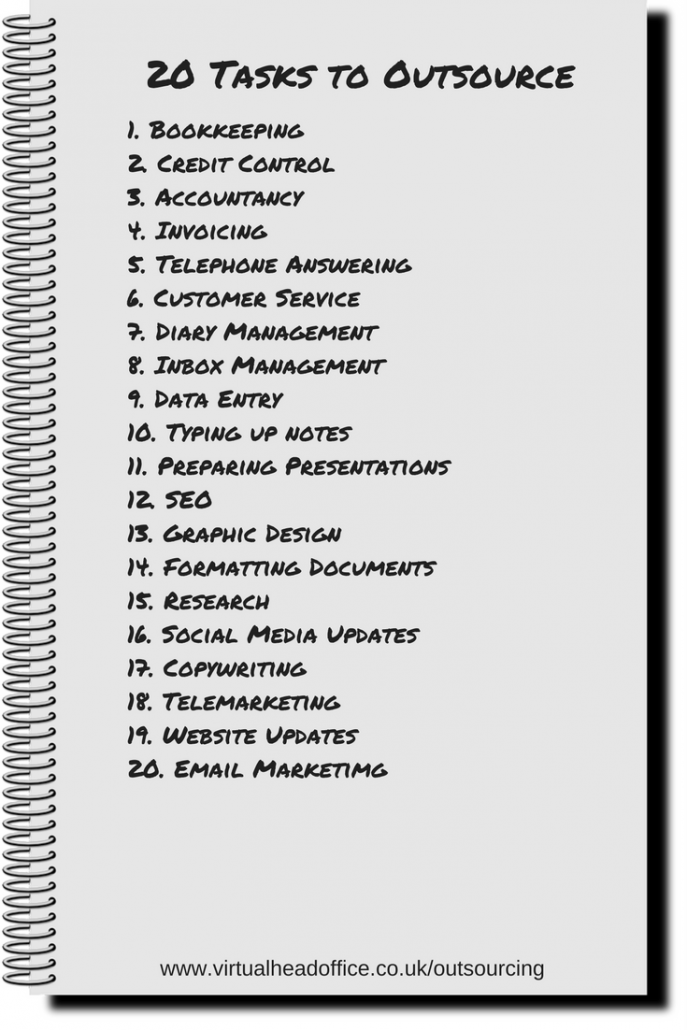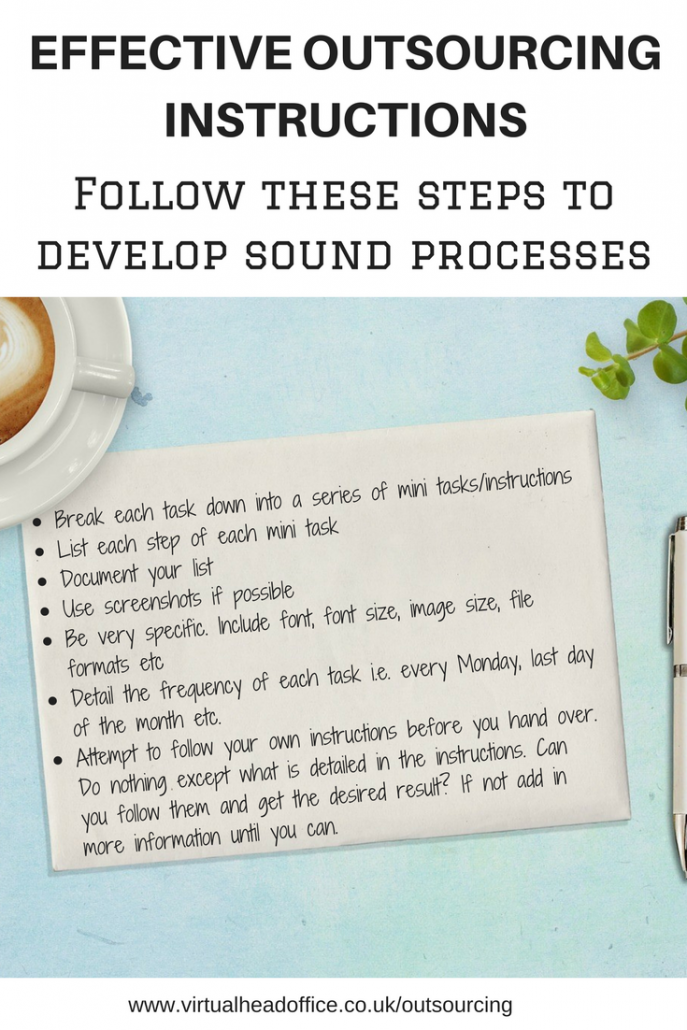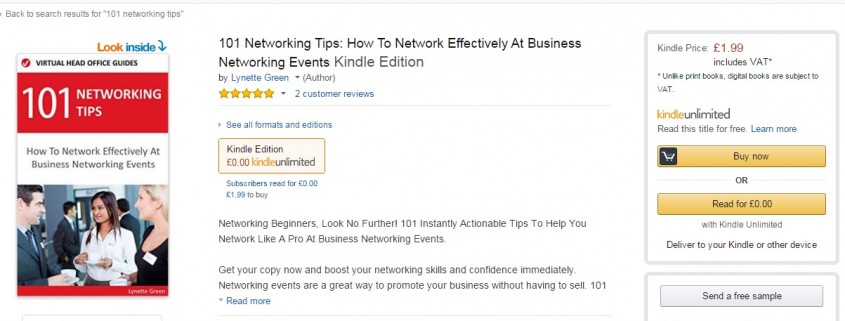Outsourcing: The Ultimate Guide For Small Business Owners
Outsourcing is the practice where companies large or small use resources outside of their own company to fulfill certain functions. Small businesses in particular, who seek to keep headcount and costs down will tend to outsource a lot. In fact, I’ll be willing to guess that you are probably already outsourcing at least one function of your business already.
Outsourcing is on the increase. It’s no surprise really. There has been increase in start up businesses in recent years, combined with tough market conditions. Businesses are seeking to keep costs down and this has led to a demand for outsourcing. Add to that an increase in the technology which enables people to work from anywhere and share information. Outsourcing has become easier. This trend looks set to continue.
Why should you outsource?
It’s Low Cost.
The number one reason businesses choose to outsource tasks is that it’s the most cost effective option. The cost to a business of an employee on the payroll is high. As we as their pay, you will have to pay them salary, holiday, sick pay, National Insurance contributions and other benefits. If that person works in your office you will need to have the space to accommodate them, a desk and a computer. You may well also need to invest in training to keep their skills up to date in line with the changing demands of the role.
With outsourcing you will only ever pay for the work that is actually done. Unlike when you have an employee during the quieter periods who is sitting there with nothing to do. Typically when you outsource the person that does the work for you will just concentrate on one type of work, such as bookkeeping. Concentrating on just one type of work means that tasks are completed quicker. For example just concentrating on bookkeeping, rather than trying to answer the phone and deal with enquiries as well as bookkeeping.
You utilise a specialist skillset for each task.
Using a bookkeeper for bookkeeping, a social media specialist for social media etc. means that you are utilising someone with a more in depth knowledge of their job. A specialist therefore performs better in their role than someone fulfilling a diverse range of tasks as they have learned their craft. A specialist skillset therefore results in a higher quality of work.

Outsourcing frees up time.
So you’ve started your own business, you’re an entrepreneur, but how do you actually go about fulfilling your goals for your business? Whatever your business goals, you need to keep a firm eye on them and spend time every day working towards those goals in order to achieve them. Sounds great in theory, but it’s not always the reality. Often finding the time to focus on something you are trying to achieve in 5 years’ time can be shunted down in the pecking order to deal with an urgent deadline. Sound familiar? If you’ve outsourced the task to someone else you don’t have to be bogged down by the mundane but necessary tasks.
It increases productivity.
Everyone gets on with the thing they do best and what they are most efficient at. As a business owner you can concentrate on growing the business and driving it forward.
It’s a flexible solution.
Some months you may find you utilise an outsourcing partner quite intensively, the next month you may find you don’t use them at all. It can adapt to your business needs.
All of the above points are well documented, measurable benefits of outsourcing. Something I believe in addition, which is not so easy to measure is the impact on performance of enjoying what you do.
Naturally delegating activities to other people frees up your time to spend on doing what you do best, what you enjoy and what you can earn your money from. Imagine how you would feel about your working week if you were spending more of your time doing what you love. Would this make you feel more positive and motivated about your working week? If you answered yes, would feeling more positive also make you more productive and potentially more profitable?
Not only that, for the businesses that you outsource to, that particular task is their core business, and what they love doing. By outsourcing to specialists, you are freeing up your own time to concentrate on what you are passionate about. You are also ensuring that all aspects of your business are run by those with both the skills, enthusiasm and motivation to do it. You are bringing enthusiasm you need to ensure your company is performing at it’s best.
What should you outsource?
Broadly speaking anything which is not a core activity of your business, however, you can break that down in to two categories:
Repetitive tasks:
This may include things such as data entry, book keeping, answering the telephone, credit control or other administration. In other words time consuming tasks which prevent you from focusing on what is important. What is important for you as a business owner to focus on? Business owners should concentrate on profit generating core business activities and working towards business growth. Everything else can be delegated.
Specialised tasks:
This would include activities such as accountancy, IT support, web development, graphic design, HR or any activity that you don’t have the skills to carry out yourself professionally. These are the kind of tasks that if you attempt to do yourself it would be time consuming to learn how to fulfil them. Furthermore, the chances are if your core skills are in another area you risk not doing a professional job.
To decide what to outsource first you can conduct an analysis. Make a list of all the tasks that you are spending a lot of time on, as well as those which you feel are not being fulfilled properly at the moment and then seek out some help.
Consider outsourcing these tasks:

When should you outsource?
The truth is the time is different for every business. Some may outsource from the start, bookkeeping for example is quite a common task to outsource from the outset. Similarly, many businesses will outsource the development and updating of the website from the beginning.
For most small businesses, what tends to happen is outsourcing is something that happens incrementally as time goes on. When you find that a particular task is taking up a lot of time and is getting in the way of more productive and profitable duties, then it’s time to look at outsourcing. The trick is to see the progression of the amount of time spent on a particular task and find an outsourcing partner before you get too busy. You need to plan in time to both find an outsourcing partner and then briefing them. You do need to expect to make an investment of time at the outset with outsourcing, before everything can be handed over.
How to find an outsourcing partner?
Who do you outsource to?
Recommendations are always a good place to start. Ask trusted business associates if they outsource any tasks and if they can recommend anyone. If not, LinkedIn and Facebook groups can be a mine of information, as well as networking and of course a good old Google search. You can also consider using resources such as www.upwork.com and www.fiverr.co.uk.
Should you outsource services internationally?
This is a subject of some debate. Undoubtedly there can be cost savings by getting things done overseas. This does not necessarily mean that the quality will be better or worse. There are things you do need to consider though. For example, a VA in another country will be working in a different time zone. Does this matter to you? Some business owners like to be working at the same time to react to things throughout the day. Others like the fact that they go to bed and wake up to a ticked off To Do List.
Ultimately I would say it depends what you are planning on outsourcing and if it really makes a difference to that particular service. For example, you may be happy to have documents created overseas, but would like to have all of your calls answered locally.
How to get the best from the relationship when you outsource.
The single most thing in the relationship with an outsourcing partner is communication. You need to communicate clearly, very specifically and honestly.
Never assume the outsourcer knows what you are thinking. Give them the information they need to fulfil the task, but no more than necessary.
The most effective way to communicate the tasks is to have a very clear documented process for everything you need them to perform. Don’t attempt to hand over any work until you have a system in place that you can hand over to someone else.

Make sure you discuss:
- Exactly what they need to do and what the deliverables are.
- The ultimate project deadline date as well as dates of any key milestones along the way.
- How the two of you will communicate, i.e. will you have a weekly catch up to discuss progress? By email or phone? This is your opportunity to ensure work is staying on track and if there is anything you need to bring to their attention you can do it here. Always be completely honest if there is anything you are not entirely happy with.
- Price and payment terms.
- Whether you would like them to sign a non-disclosure agreement.
Do you find it hard to let go?
Many business owners do. It’s understandable. Your business is your baby. However, to grow your business, in fact for it actually to become a proper business and not just a job for you, you will need to delegate to others. Whether you are delegating to an employee or outsourcing if you really struggle with letting go, make that clear to the outsourcing partner from the start.
Outsourcing providers work with a variety of different people and they will certainly be used to being nervous about handing work over. Tell them from the start how you feel, if you would describe yourself as a control freak make them aware right from the start, so they know that you need to be kept well informed along the way. It set’s the expectation from the start and results in a much better relationship from the outset.
How to develop specific instructions for your outsourcing partner.
Follow these steps to take each task and develop a process for it.
- Break each task down into a series of mini tasks/instructions.
- List each step of each mini task.
- Use screenshots if possible.
- Be very specific, i.e. include font, font size, image sizes, file formats etc.
- Detail the frequency of the task, i.e. every Monday or last day of the month etc.
- Attempt to follow your own instructions before you hand over. Do nothing but what is detailed on the instructions. Can you follow them and get the desired outcome? If not, add in more information until you can.

Working with an outsourcing partner will require some investment of time initially. You will need to both source the appropriate supplier and then properly brief them on the work that needs to be done. You may find that at first you need to work quite closely with your outsourcing partner to ensure they fully understand your requirements. This is time well spent though. If you work with them and provide regular feedback the outsourcers will soon learn.
Freeing up your time from low level tasks as well as those you don’t really have the skills to do enables you to focus on your core areas of business. It enables you to push forward with working towards goals. Done effectively, outsourcing can help you build a flexible, highly skilled team at low cost. Use it to free up your time to enable you to grow your business and your profits.
Take our FREE 5 Day Outsourcing Challenge now to become an outsourcing pro!








